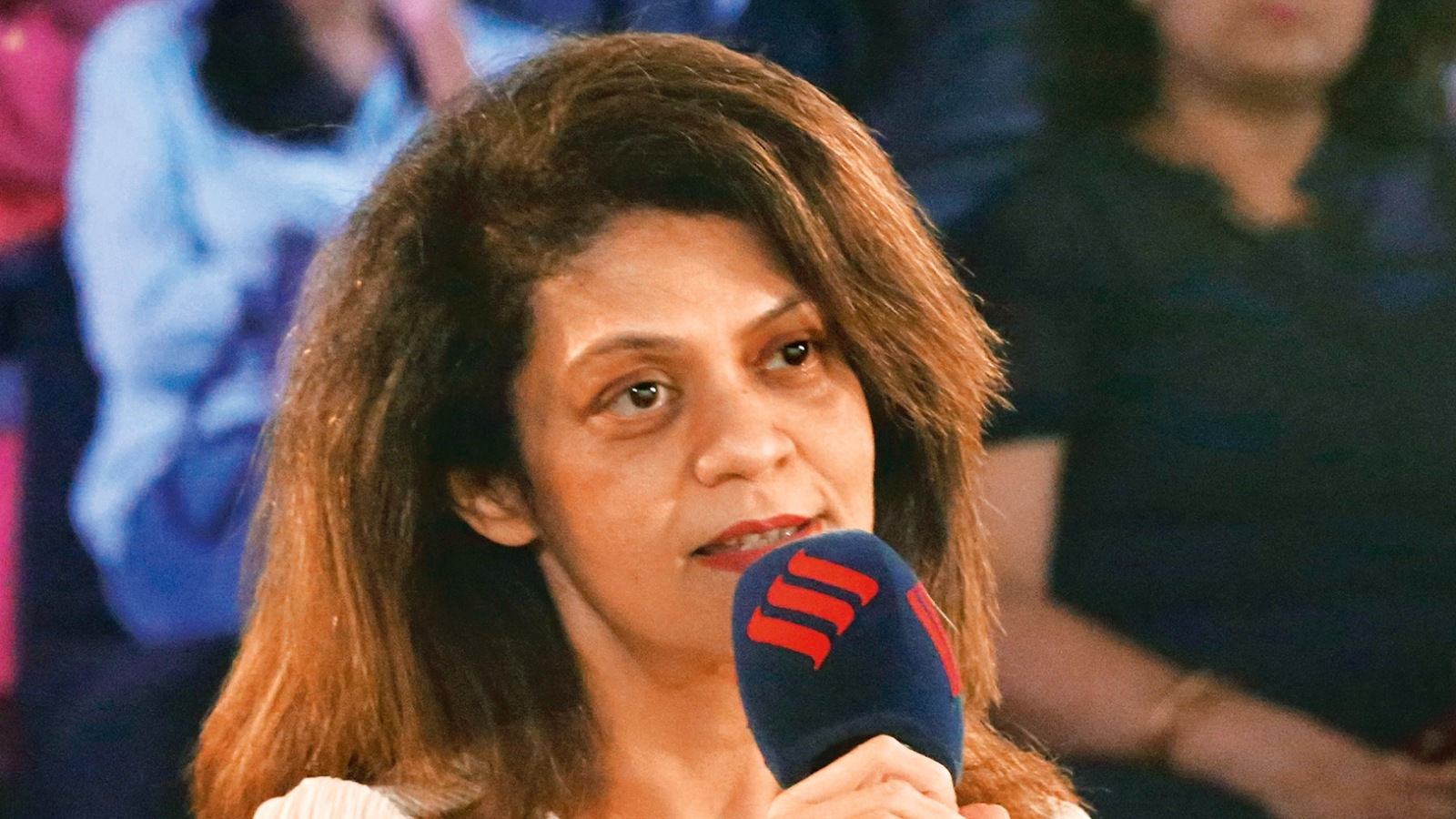Jyotiraditya Scindia: ‘We followed the world in 4G, we marched with it in 5G, but we will lead it in 6G’
Jyotiraditya Scindia spoke on how India is setting the trend in technology, whether the PSU telecom operators have missed the bus, transitioning from the Congress to the BJP and what sets both parties apart
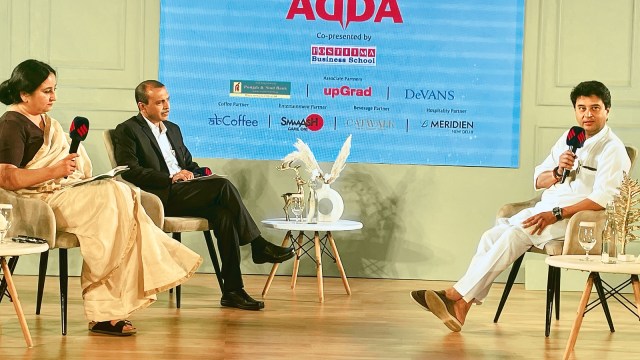 (From right) Jyotiraditya Scindia, Union Minister of Communications and Development of North Eastern Region, with Rishi Raj, Executive Editor, The Financial Express, and Vandita Mishra, National Opinion Editor, Express photo
(From right) Jyotiraditya Scindia, Union Minister of Communications and Development of North Eastern Region, with Rishi Raj, Executive Editor, The Financial Express, and Vandita Mishra, National Opinion Editor, Express photoAt a recent Adda held in New Delhi, Union Minister of Communications and Development of North Eastern Region Jyotiraditya Scindia spoke on how India is setting the trend in technology, whether the PSU telecom operators have missed the bus, transitioning from the Congress to the BJP and what sets both parties apart
On differences between Modi 1.0 and 3.0
Modi 3.0 is a continuum of Modi 1.0 and Modi 2.0. The only change is — as the Prime Minister said to all of us — three times more mehnat, shakti and result. Immediately after Independence, the government had three turns but that was primarily because there was no Opposition in place. In a very fiercely competitive landscape, for the first time in history, a government has been returned by the people, for the people, of the people, for the third time. The outlook is to make sure that Bharat is an Atmanirbhar Bharat, Viksit Bharat and Vishwa Guru Bharat. That is the ultimate aim and we are progressing down that route in a rapid and exponential manner.
On campaigning for Maharashtra polls
Not only was I born in Maharashtra, I went to school there and I speak Marathi. I am also a Maratha. I certainly do hope that I will be campaigning there. It’s a state with which I have, apart from my home state, Madhya Pradesh, a deep emotional bond.
On differences in the way the BJP and Congress work
Inside the BJP, there is a fervour to contribute and there’s positive competition. The BJP president set a membership target of more than 10 crore, close to about eight per cent of our population, primary members. My state, Madhya Pradesh, was given a target of one crore. The fervour with which each karyakarta worked to ensure membership in his ward or in his gram panchayat was astounding. Generally, if you have your CEO and your vice president, all the grunt work has to be done by your stringers on the ground. The higher-ups normally sit in an AC office and are on their iPads, laptops and phones. Here, MLAs, MPs, ministers were given targets. It doesn’t matter how high you sit. The higher you sit, the more you have to work on the ground.
Each MP was given a target of making 25,000 members… I made close to 71,000 members. So it doesn’t matter that you are a minister in the Government of India, you have to roll up your sleeves, get down and dirty, and work hard in the BJP. You can’t dream of doing this in the Congress.
On keeping a low profile
I have always believed that actions should speak louder than words. They used to say of my father that he wasn’t a very successful politician because he didn’t think like a politician, he didn’t act like a politician, and he was not high-profile. I think that defines a very successful public servant. And that’s what my father was. The same was the case with my grandmother. Maybe, in a way, those are genes that I’ve inherited. And I believe my work should speak for me, and not necessarily my profile, and not necessarily how much I’m in the news or how I am not. The results should speak for me.
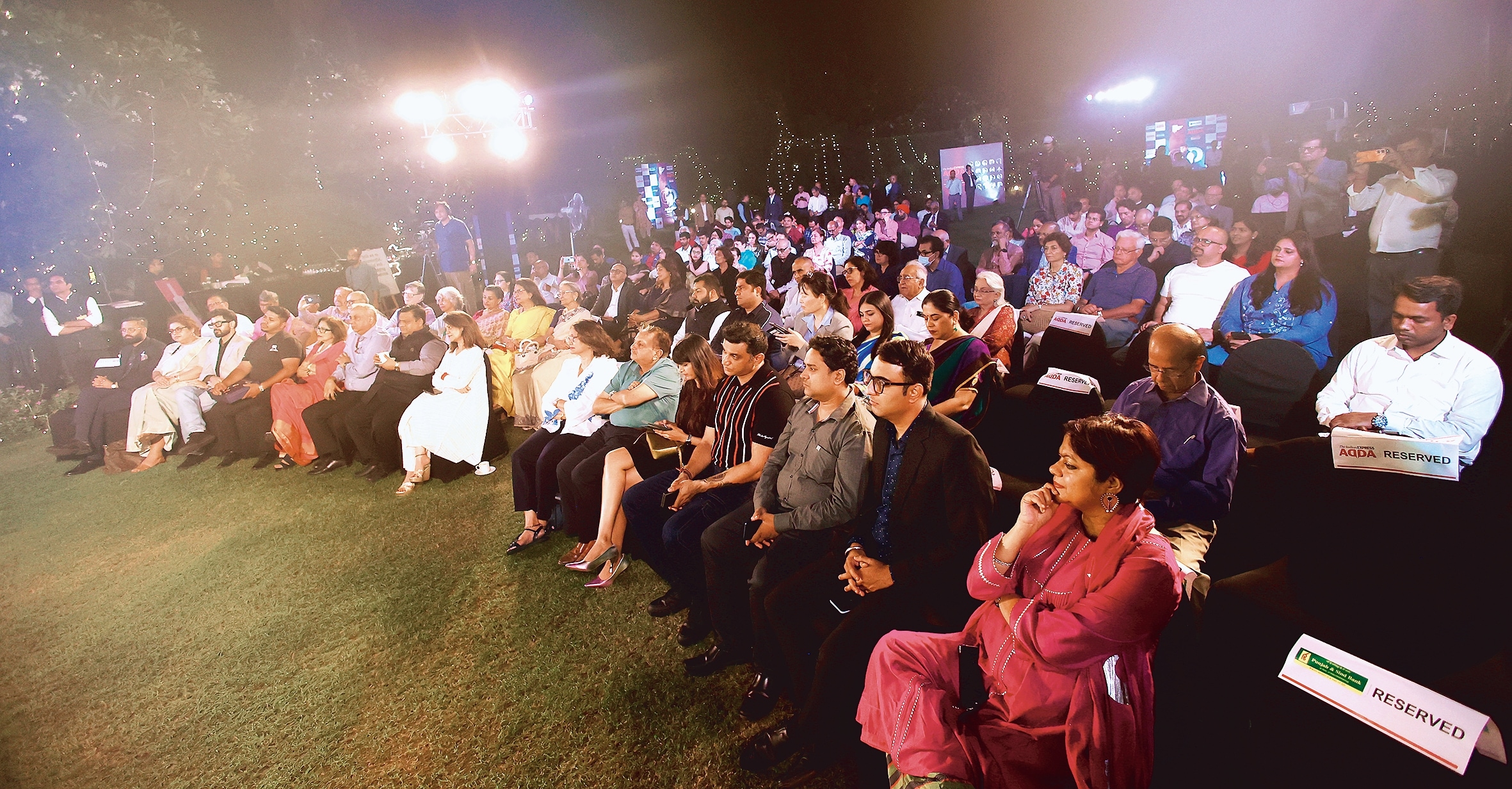
On what has changed in the world of telecom
The whole world has changed. What the telecom revolution has done in the last decade under the Prime Minister’s leadership is that it has completely disintermediated the intermediary.
So there’s a world out there that needs new ideas, innovation and products. And there is a population that has all the capabilities to produce it. But like an hourglass, there is a fulcrum in between that squeezes and disintermediates both of these. Telecom and IT has completely blasted away that speed breaker and has connected the creators of the new innovations with the opportunities that lie before them. So the revolution that is taking place in telecom is mind boggling. For the first time, we are not followers of a given technology. We will be setting the trend. After having our own 4G stack, we are switching that to 5G. We’ve also put in place the Bharat 6G
alliance, which will set the standards for 6G worldwide. India’s never been a part of this. We followed the world in 4G, we marched with the world in 5G, but we will lead the world in 6G.
On whether we need PSU telecom operators
The key issue is that as a democracy and as a country that is forward-looking, what is extremely important is to be able to provide the ubiquity of opportunity to every single citizen in our country. Even today, it is only BSNL that is reaching the last village in our country in terms of telecom service. It is only BSNL that is providing that ubiquity of opportunity. And that ubiquity of opportunity is not only in terms of the instrument that you have in your hand. That’s only a carriageway. That carriageway and highway enables and carries millions of opportunities your way. I really believe that BSNL has tremendous capabilities. It just needs to be triggered. Yes, we are behind the curve, but we are intentionally behind the curve because we chose the hard way. BSNL said, we will be atmanirbhar in our equipment. Yes, we are catching up today, but we hope to lead tomorrow.
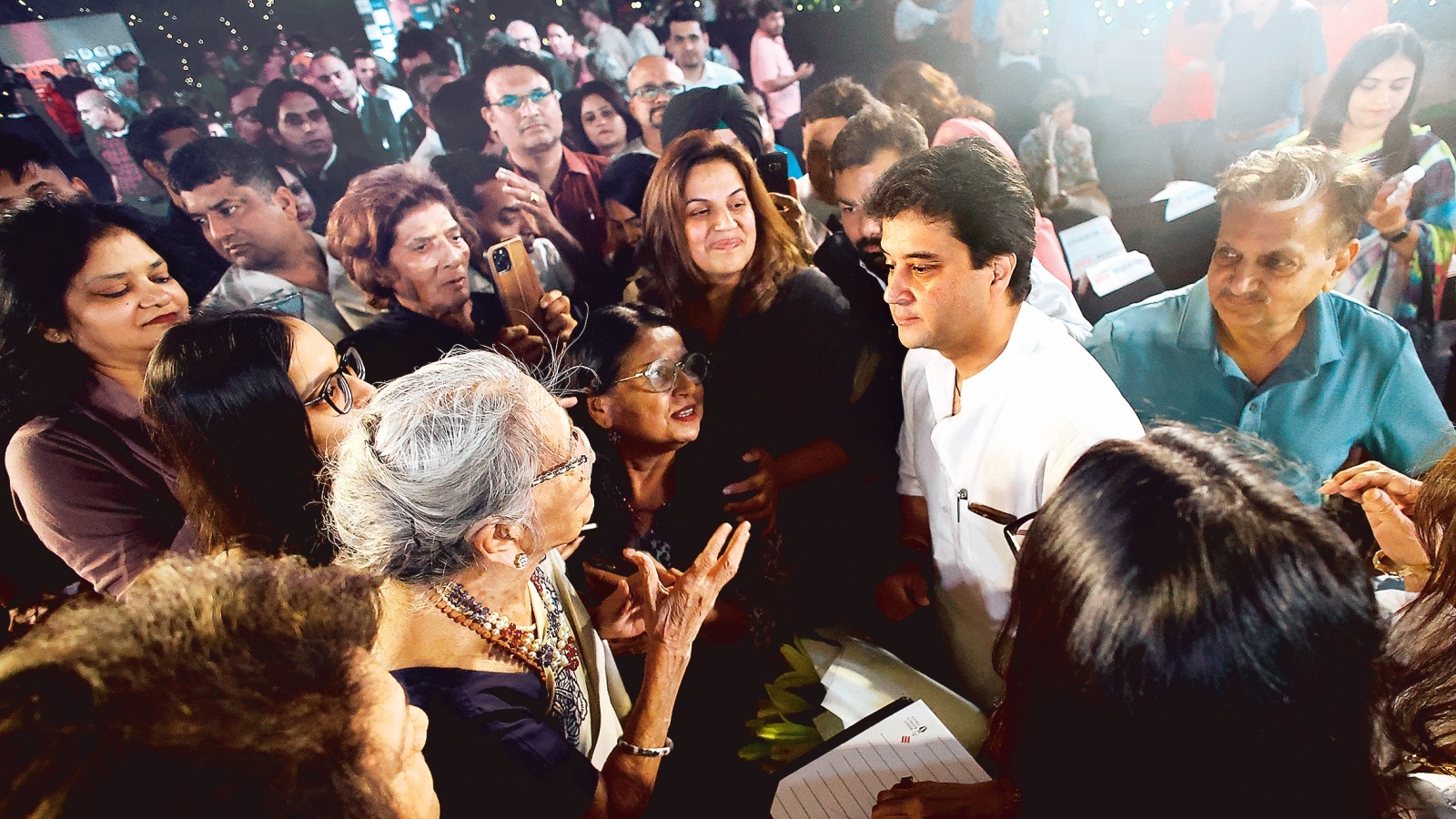
On the prolonged violence in Manipur
The Manipur issue has been an issue for the last four decades. It certainly has the highest attention of the government and the Prime Minister. We’re working at it every single day, but it is a legacy issue. That doesn’t mean that you step away from it. You have to confront it and resolve it to the best of your ability. We are working at it.
But in the interim of that, the Northeast has to grow as a growth engine of India. There are tremendous possibilities, which is what this government is working on. At the same time, you do have issues. But we will try and resolve it to the best of our ability.
On tackling spam calls
So here’s my hat, not as a minister but as a customer and consumer. It’s very irritating when your phone is ringing all the time and it’s all either marketing calls or spam calls. So here’s what we’ve done: DoT, along with all the telcos, have released a successful version of ensuring that we disengage spoof calls. In the last five days, we have stopped close to 1.35 crore calls per day. That means almost close to seven crore calls have been blocked by the software. Number two, in terms of people who use the mobile phones for financial fraud or
cyber crime, we’ve disconnected about 1.77 crore mobile numbers. Similarly, stolen mobiles, close to 14 to 15 lakh mobile numbers. So this is a scourge. Technology brings exponential advantages but it also gives an opportunity for people to misuse it. And that’s where the regulatory system has to come in. Since the day I took over as minister, that’s one of the things that I put in on my dashboard. We need to make sure that we stop this. And I will not stop until every single person stops getting harassed.
On the transition from Congress to BJP
The BJP was very much a part of my life and my DNA. Let’s not forget that my grandmother, Rajmata sahab, was one of the founder members of the BJP. So as a child, I have seen all the stalwarts of the BJP. Second, even when I was in the Congress, I had many people with whom I had very deep personal relationships in other parties, including the BJP. So
there are two parts, there’s a professional front and there’s a personal front. On the personal front, it wasn’t a difficult switch for me, because it wasn’t something that was alien to me. It was very much a part of my childhood. And then, even in my political career, I had relationships across the aisle. So, for me, it was in many ways a homecoming.
On BJP’s setback and Congress doubling its tally in 2024
I frame it a different way, that it was a historic win for the BJP. No political party in Independent India has ever won an election for the third time on its own strength. And the BJP is the only party to have been able to achieve that three times in a row.
The Congress has certainly gone from 52 or 53 to 99, but it’s still double digits. I want to put these two statistics in front of you and I think it would do well for every Congressperson to internalise these statistics. Take the number of seats the Congress won in 2014.
Take the number of seats the Congress won in 2019. Take the number of seats the Congress won in 2024. Add them all up. Take that combined number over 15 years as the total number of seats the Congress won in this election, even then the Congress has not reached 240.
And the third point: take all the seats in which the Congress party has gone head-to-head with the BJP. The Congress’s hit ratio is not even 25 per cent. So it’s 75 per cent to 25 per cent… The Congress has actually become a burden on its alliance partners. There are those who know how to snatch victory from the jaws of defeat. And then there are those who know how to snatch defeat from the jaws of victory.
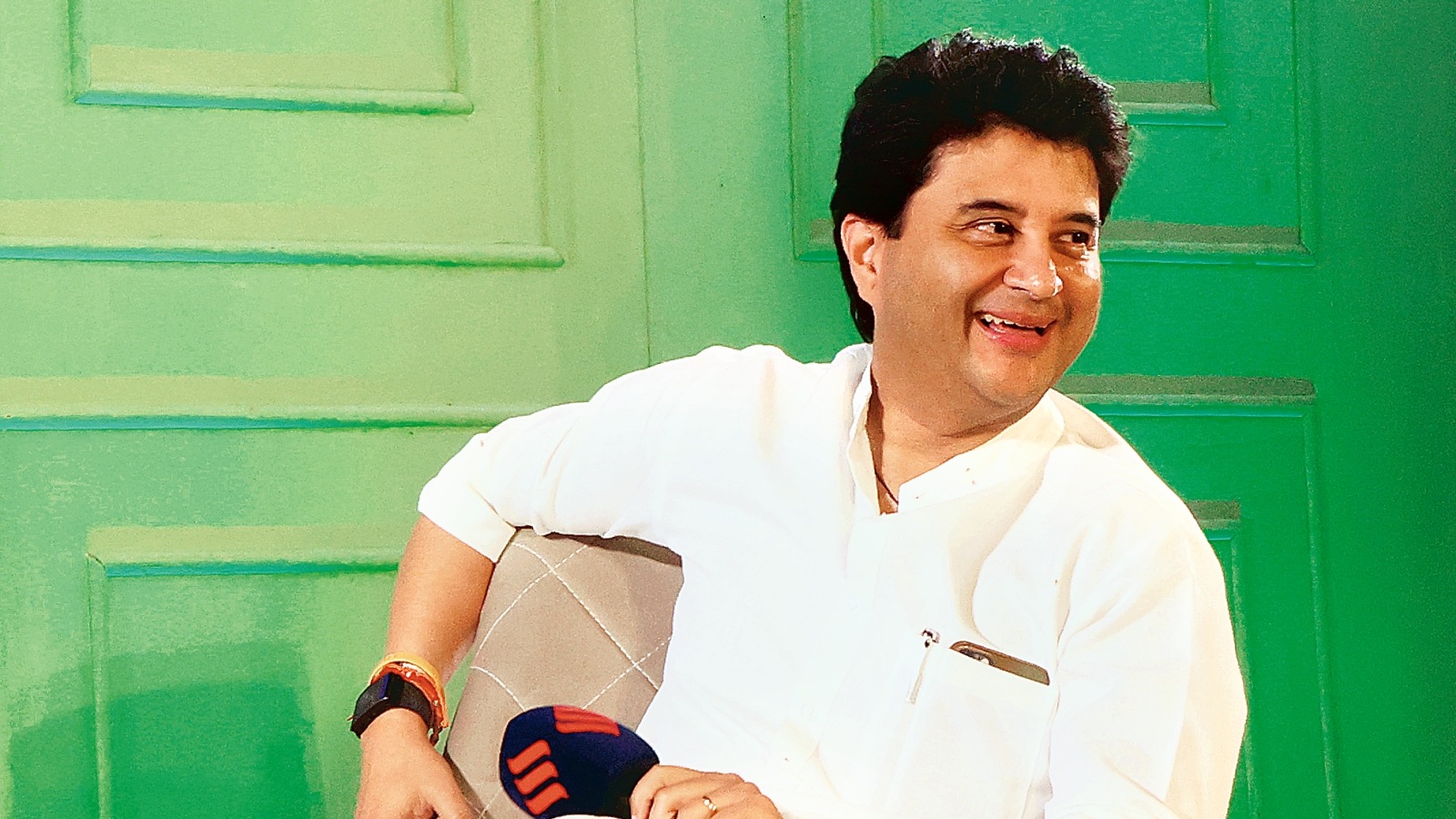
Quick questions with Anant Goenka
The one way in which royalty in India in the year 2024 is different from regular folks?
Why should it be different? It’s an egalitarian society.
The one monarchy outside India that you look up to.
I can’t think of any. You can ask me the leaders that I look up to, yes. But I can’t think of any monarchy I look up to. I believe that’s a thing of the past. I believe it’s something you should certainly cherish and something that you’re proud of. But it’s something of the past.
The one moment or episode in your career that you are most proud of?
I was in boarding school and apart from academics and sports, the beauty of boarding school is that you have to do some socially useful productive work, called SUPW. So I volunteered and taught a blind family member his BEd course. I spent six months with him and he passed his BEd exam.
The one regret in your professional career.
No regrets. I believe you must face ups and downs of life with equanimity, humility and patience.
What’s that one magic with which, over successive governments, Indore remains the cleanest city in India?
It’s people.
The one critical asset the BJP has, which the Congress doesn’t, beyond the Prime Minister?
Sense of service, sense of devotion to Bharat Mata and a sense of country before self.
Sitting in the BJP, the one thing you miss about the Congress.
Nothing.
The one thing you feel a sense of relief or good riddance with regard to the Congress?
I am not one in life to conspire, be mean. It’s not a Scindia gene. It wasn’t with my grandmother, it wasn’t with my father, it’s not with me. Move on in life and move forward and serve.
Your advice to the next Congress leader the BJP has approached to switch sides.
What are you waiting for?
If you were to take a guess, how many functioning telecom operators will India have five years from now?
I think you should have at least four, which is much more than any other country has in the world.
The future of the largely China-manufactured smartphones?
Over. India imported 40,000 crore worth of mobile phones in 2014. Today, India manufactures 35 crore mobiles. India exports Rs 1,29,000 crore worth of mobiles. We’re the second-largest mobile phone producer in the world today. It’s India, India, India. So I would love for the Chinese to come and buy mobiles from India.
The future of the MTNL employee.
I think the future of the MTNL employee is bright. I think the options are to either join BSNL, or any one of the other telcos.
It’s a bit of a cliche but I want to know your answer. You’re stranded on an island. You can pick one companion for an indefinite period of time. It has to be a politician from the Opposition. Who do you pick?
If I had been in the Congress, I’d give you a lot of examples.
Rashmi Saluja
Executive Chairperson, Religare
You had two iconic leaders in your family — Rajmata Scindia and Madhavraoji. Who are you more inspired by?
I’m inspired by both for different reasons. Both had, at the core of their heart, a sense of service to the country. My grandmother for her fervour, dedication, commitment to a cause, ability to traverse from Kashmir to Kanyakumari, from Gujarat to the Northeast, in terms of building an institution. My father for his capability to touch people’s lives. For me, he represented the true meaning of what to be a good human being is, and I try to embody those qualities, to be able to touch people’s lives, apart from the fact that he was a technocrat and ran his ministries efficiently.

Anil Somani
Executive Chairman, Fostiima Business School
You’ve led a comfortable life. What drives you to keep doing this service in the interest of society? Do you have any message for the youth?
I went for undergraduation to America. After graduation, I became an investment banker. I was a banker in New York, followed by Hong Kong and then Mumbai. I cherish my experience of those days and still try to apply what I learned to my current occupation, which is that of a public servant. The key difference between that career and this service is the ability to make a difference in people’s lives. That is something that must come from the heart. I want to tell the youth of today, do what comes to you, not from here (the mind), but what comes to you from here (the heart).

Ishan Arora
Founder & CEO, Catwalk Botanics
Any efforts you’ll make to promote cultural exchange between states that comprise the Northeast with the rest of the country?
We are holding a three-day cultural festival in December called the Ashtalakshmi Cultural Festival. Our eight states will be in all their grandness in Delhi, exhibiting not only their capabilities but also their soft strength, architecture, people, culture and music. There is an amazing repertoire of music in the Northeast. Their handicrafts and handloom are beyond world-class. Bamboo, I think, needs to be propagated across the world. I’ve put together a task force that is looking at these initiatives. I’ve got a tourism task force… I’ve also got task forces working on agarwood, palm oil, handloom and horticulture.

Sona Vikas
Dean-Management, Asian School of Business
We are dealing with a generation of youth that is addicted to mobile phones. What are some of the key priorities of the government in channelising this youth towards nation-building?
it’s very important to maintain a balance. The relationships that you build in the classroom or outside by spending time with each other cannot be substituted by a message on the phone. Every time you see that light blinking, your hands itch to see ‘What is in that treasure box that’s come to you?’ Nevertheless, that balance must be maintained. Each individual must have the belief that he or she must contribute towards the concept of nation-building.
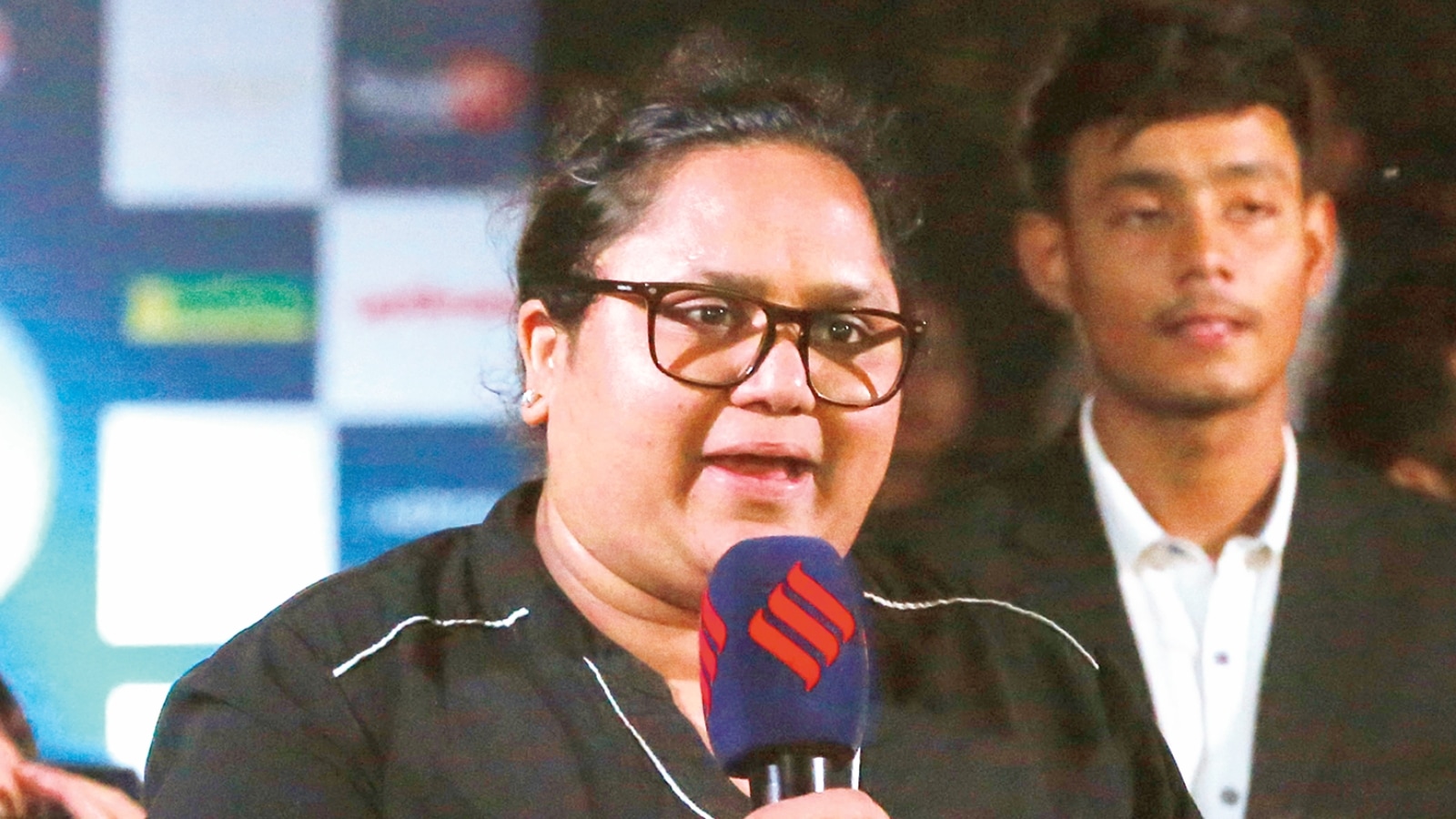
Mansi Aggarwal
Co-founder and CEO, Co-offiz
How do you prioritise citizen engagement in your decision-making process?
The first thing that people need to understand is that you don’t have solutions to all problems. In every ministry that I’ve had the privilege of serving, I’ve always set up advisory groups. In the Communication Ministry, I have six stakeholder groups. In Civil Aviation — and now i’m trying to do the same in Telecom — I set up a public grievance mechanism system called Air Sewa. It’s at the back of your boarding pass. I would monitor that portal on a daily basis in terms of the number of grievances that have come in and the number of grievances that have been resolved. The third example is in my grassroots, my constituency. In every district I’ve set up a stakeholder group in terms of what should be the blueprint or path for our area.

Sudesh Kumar
Marketing Manager, Smaash
Do you get time to play any games? we are into a different segment of games — Virtual Reality.
Sports is not only a physical exercise. Two things are extremely important — sports and meditation. One I’m not able to do as much as I should, the other I am. Mental agility is not only about your brain. It is also about your physical well-being. Many of us take that for granted too often. Regular physical exercise is extremely important. I try and make
it an important daily practice.


